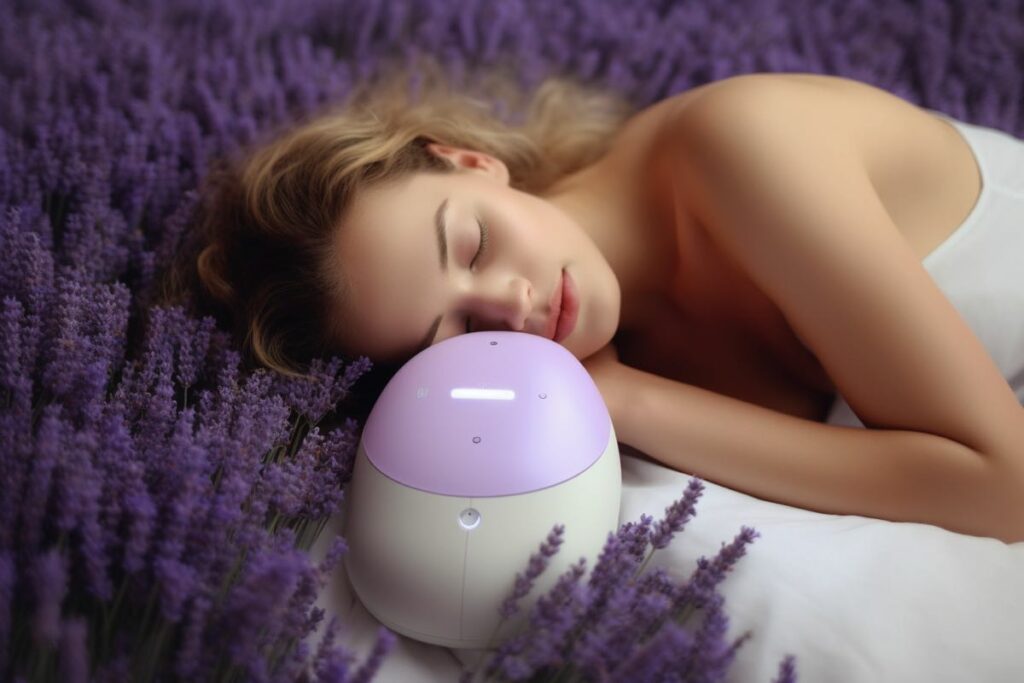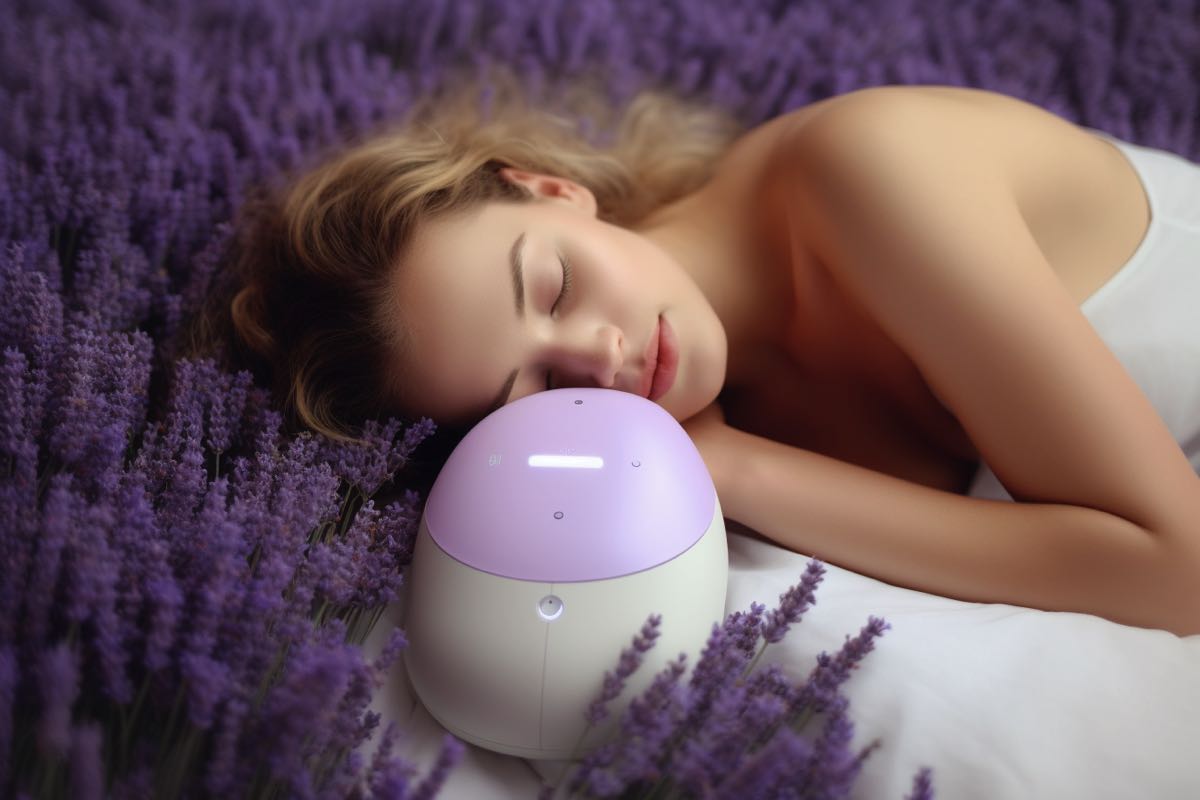As a sleep enthusiast, I can’t emphasize enough the importance of a good night’s rest for our overall well-being. However, sleep apnea can be a pesky intruder that disrupts our slumber and negatively impacts our health.
If you’re like me, and you prefer to opt for natural remedies whenever possible, then you’re probably on the lookout for ways to alleviate sleep apnea without relying on uncomfortable devices or medication. Well, my fellow sleep lovers, you’re in luck!

In this article, we’ll explore some of the most natural ways to cure sleep apnea so that we can all enjoy the deep and restorative sleep we deserve. From simple lifestyle changes to alternative therapies, let’s dive into these holistic solutions together and discover which ones might work best for us individually.
So grab your comfiest pillow and let’s get started on our journey towards better sleep!
Adopting A Healthier Lifestyle
As a sleep enthusiast, I can’t emphasize enough how important it is to adopt a healthier lifestyle to naturally cure sleep apnea. Lifestyle modifications play a crucial role in managing and alleviating the symptoms of this sleep disorder.
Trust me, making these changes might seem challenging at first, but once you experience improved sleep quality and overall well-being, you’ll be glad you took the leap!
One of the best ways to start is by focusing on balanced nutrition. Eating a diet rich in fruits, vegetables, whole grains, lean proteins, and healthy fats can work wonders for your body and mind.
Not only will it help maintain a healthy weight (which is often linked to sleep apnea), but it also provides essential nutrients that support better sleep patterns. So go ahead and make those changes – your body (and your sleep) will thank you!
Practicing Sleep Hygiene Techniques
Did you know that a whopping 35% of people experience poor sleep hygiene, which can actually contribute to sleep apnea? Practicing good sleep hygiene techniques is one of the most natural ways to potentially alleviate sleep apnea symptoms. Having a consistent bedtime routine and optimizing your sleep environment are two key factors in improving your sleep quality.
Here are some valuable tips to ensure you’re practicing the best sleep hygiene techniques:
- Create an optimal sleep environment:
- Keep your bedroom cool, dark, and quiet
- Invest in a comfortable mattress and pillow
- Avoid screens or any other sources of blue light in the bedroom
- Establish a soothing bedtime routine:
- Engage in calming activities like reading or taking a warm bath before bed
- Limit caffeine and heavy meals close to bedtime
- Practice relaxation techniques such as deep breathing, meditation, or gentle stretching
- Maintain consistency in your sleep schedule:
- Go to bed and wake up at the same time every day, even on weekends
- Limit daytime naps to no more than 30 minutes
- Get regular exposure to natural sunlight during the day
Incorporating these simple yet effective habits into your daily life can make a significant difference not only for those with sleep apnea but for anyone aiming to improve their overall sleep quality. Give it a try – you might be surprised by how much better you feel after just a few nights of restful, rejuvenating slumber!
Trying Breathing Exercises And Yoga
I’m so excited to discuss breathing exercises, yoga postures, and relaxation techniques as a way to naturally cure sleep apnea!
I’m a huge fan of using diaphragmatic breathing exercises to help relax the body and open up the airways.
I also love practicing yoga postures to help stretch out the neck and shoulder muscles, which can help alleviate tension that can cause sleep apnea.
Finally, I think relaxation techniques are important to help reduce stress and anxiety, which can be a big trigger for sleep apnea.
Breathing Exercises
I can’t stress enough the importance of breathing exercises in apnea prevention!
As a sleep enthusiast, I’ve found that incorporating these techniques into my daily routine has provided me with numerous breathing benefits.
Not only can they help with relaxation and stress relief, but they also promote proper breathing habits, which are essential for those of us dealing with sleep apnea.
By focusing on diaphragmatic breathing and practicing specific exercises like the 4-7-8 technique or alternate nostril breathing, you’ll be well on your way to improving your overall respiratory health.
Plus, don’t forget to explore the world of yoga – it’s yet another fantastic way to enhance your breathwork and overall well-being.
Yoga Postures
Speaking of yoga, let’s dive into the world of various postures and their significance in promoting better breathing and overall health.
As a sleep enthusiast, I can’t emphasize enough how incorporating yoga into my daily routine has tremendously improved my sleep quality.
Yoga benefits extend beyond just flexibility and strength – focusing on posture importance enables us to open up our airways and enhance our lung capacity.
By including specific poses like Bridge Pose, Cat-Cow Pose, or Legs-Up-The-Wall Pose, we can actively work towards alleviating sleep apnea symptoms while reaping the rewards of relaxation and stress relief that yoga brings.
So why not give it a try? You might be surprised at just how much your breathwork and overall well-being improve!
Relaxation Techniques
Now that we’ve explored the world of yoga postures, let’s delve into some relaxation techniques that can further enhance our breathing and sleep quality.
As a sleep enthusiast, I’m always on the lookout for new ways to unwind and destress before bedtime.
Mindful meditation is one approach I find incredibly beneficial – it’s all about focusing on the present moment and acknowledging our thoughts without judgment or reaction.
Another technique I love is calming visualization, where you imagine yourself in a peaceful setting that brings a sense of tranquility and relaxation.
By incorporating these practices into your daily routine, you’ll not only improve your breathwork but also create an ideal environment for restorative sleep.
So go ahead and give them a try!
Exploring Herbal And Dietary Remedies
As a sleep enthusiast, I’m always on the lookout for natural ways to improve my sleep quality, and I know you’re probably just as eager to find solutions for your sleep apnea. One avenue worth exploring is herbal supplements and dietary changes that can help alleviate some of the symptoms associated with this condition. Now, I’m no doctor, but I’ve done some research and discovered a few options that might be helpful for you.
Here’s a handy little table that lists some common herbal supplements and dietary changes that could potentially help with sleep apnea:
| Herbal Supplements | Dietary Changes |
|---|---|
| Valerian root | Weight loss |
| Passionflower | Reduce alcohol intake |
| Lavender | Eating smaller meals closer to bedtime |
| Chamomile | Avoiding caffeine and nicotine late in the day |
Of course, it’s important to remember that everyone’s body is different, so what works for one person may not have the same effect on another. If you’re considering trying any of these herbal supplements or making significant dietary changes, it’s always best to consult with your healthcare provider first. They’ll be able to give you personalized advice and ensure any new additions are safe and suitable for your specific needs. So go ahead, give it a shot! You never know which natural remedy might be the key to unlocking better sleep for you.
Considering Alternative Therapies
When it comes to alternative therapies, the sky’s the limit.
Acupuncture benefits are often praised for their effectiveness in treating various health issues, and sleep apnea is no exception. This ancient Chinese practice of inserting thin needles into specific points on your body can help improve your sleep quality by balancing your energy flow, reducing stress, and promoting relaxation.
Another option you might want to consider is chiropractic adjustments. These spinal manipulations aim to correct misalignments in the spine which may be affecting your nervous system and contributing to your sleep apnea symptoms. By restoring proper alignment and function to your spine, chiropractic care could potentially help alleviate some of the breathing issues that come with sleep apnea.
Remember, a good night’s sleep is only a few lifestyle changes away – don’t hesitate to explore these alternative therapies!
Conclusion
In conclusion, finding the most natural way to cure sleep apnea can be a journey of self-discovery and personal growth.
We must be open to exploring various options that resonate with our individual needs, whether it’s changing our diet or trying out alternative therapies.
For instance, my friend Sarah found relief from her sleep apnea through a combination of yoga and herbal remedies.
Her dedication to adopting a healthier lifestyle and practicing proper sleep hygiene ultimately led her to overcome her sleep struggles.
So let’s embrace this journey together and find the best natural solution for our own unique cases of sleep apnea.
Sweet dreams!

